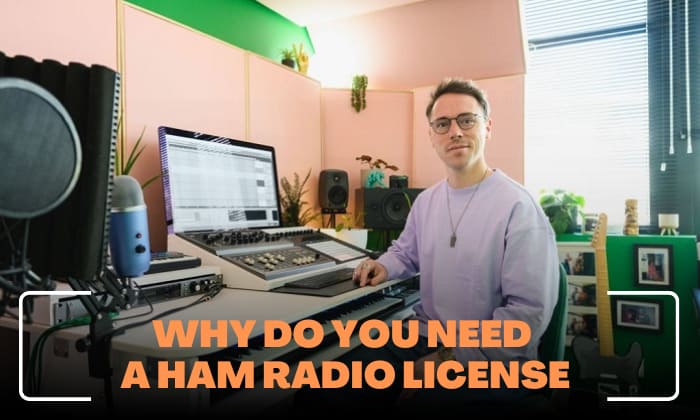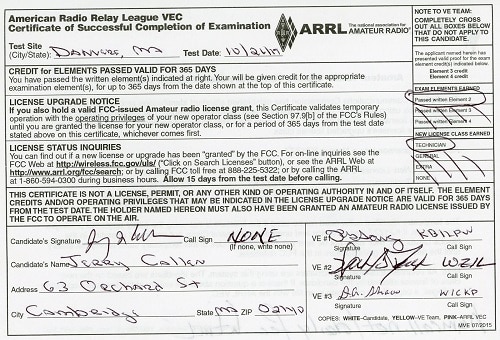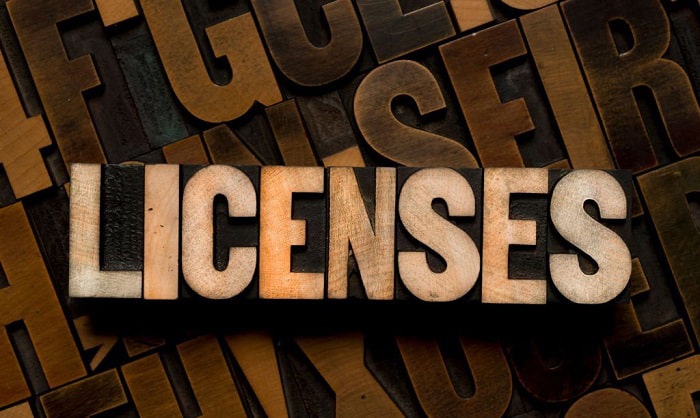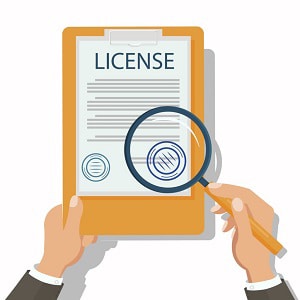Being a newbie to the world of ham radios might be a hassle because you need to pay attention to the requirements, especially the initial step, having a license. But why do you need a ham radio license? Is it really that necessary to have this when operating one?
In fact, aside from it being a legal requirement, having this is important to garner more privileges like its emergency communication capabilities, access to more frequencies, and even being a part of a radio community that promotes learning and sharing opportunities.
Contents
What is a Ham Radio License?
The Federal Communications Commission (FCC), under the Communications Act of 1934, regulates the use of amateur radio by making a license a requirement for individuals who want to operate an amateur radio station and frequencies.
Ham radio operators license outlines the call sign and specifies the frequency bands and transmission power limits granted.
To obtain an FCC ham radio license, one must pass a written exam evaluating their understanding of electronics, radio theory, and operating procedures. In the United States, there are three classes of ham radio licenses: Technician, General, and Extra, each with different privileges and operating frequencies.
Here is an example of what a ham radio license looks like:
The Importance of a Ham Radio License
1. Legal requirement
Having a license is the most important among all the ham radio requirements for anyone who wants to operate one in compliance with the law, for both leisure and emergency use. Most countries, including the United States, mandate a license for ham radio use.
Having a ham radio license certifies that the operator comprehends the guidelines and protocols for using the radio, as well as the skills needed to use it safely and prevent interference with other radio services.
2. Emergency communication when there’s no cellular network
A ham radio license enables individuals to communicate in emergency situations where a cellular network is unavailable, which can be especially helpful during natural disasters when conventional communication systems may be disrupted or overwhelmed.
3. Access to more frequencies
Obtaining a ham radio license grants access to a wider range of frequencies and modes of operation, which enables individuals to communicate over longer distances, participate in competitions and events, and engage in emergency communications.
4. Community
Having a ham radio license also links you with a group of radio enthusiasts who have a shared interest in communicating through radio technology. This community presents opportunities for learning, experimentation, social connections, and volunteering purposes during disasters.
5. Opportunities
Acquiring a ham radio license can be advantageous for individuals pursuing professions in the telecommunications or emergency services industries, as it showcases expertise and enthusiasm in the field and presents networking opportunities.
Different Types of Ham Radio Licenses
Today, there are only three known ham radio license levels because of the restructuring that started in December 1999.
The FCC simplified and modernized the Amateur Radio licensing system by reducing the number of ham radio license classes from six to three in 2000 and discontinuing Morse code proficiency tests in 2007.
1. Technician License
This ham certification is the starting point for many people to successfully become a ham radio operator. With a Technician license, you have operating privileges on all amateur radio frequencies above 30 MHz, including VHF and UHF bands.
These frequencies are often used for local communication and emergency communications. Technicians can operate using FM voice, digital modes, and other modes on these frequencies.
Its ham radio license test consists of 35 multiple-choice questions covering basic regulations, operating practices, and electronics theory.
2. General License
The General license is the next step up from the Technician license and provides expanded operating privileges on all amateur radio frequencies, including the high-frequency (HF) bands.
These bands are used for long-distance communication around the world, making it possible to communicate with other amateur radio operators on the other side of the planet.
General licensees are also allowed to operate using digital modes that require higher power levels. The General exam is more challenging than the Technician exam and covers more advanced test questions such as antenna design, propagation, and operating procedures.
3. Amateur Extra License
This is the highest level among the three amature radio licenses which provides the most extensive operating privileges. With an Amateur Extra license, you have access to all amateur radio frequencies and can use the highest power levels.
This license requires passing an exam that covers advanced radio theory, regulations, and practical operating knowledge. Amateur Extra licensees have access to exclusive frequencies which are not available to lower-class license holders.
Frequently Asked Questions
What happens if you talk on a ham radio without a license?
Doing this is against the law in the United States. If you use a ham radio without a license, you may face punishment from the Federal Communications Commission (FCC), including fines, seizure of equipment, and even imprisonment.
Unauthorized use of a radio can also disrupt critical public safety and emergency communication, potentially endangering lives. Therefore, before any operation, you need a license for a ham radio first.
What can you do with a ham radio license?
Having a ham radio license allows you to operate amateur radio equipment and communicate legally with other licensed operators both locally and globally. There are various communication modes such as voice, digital, and Morse code available.
Besides communication, you can take part in emergencies and public service events, experiment with radio technology, create your own equipment, and join amateur radio groups. Moreover, you can test your knowledge and abilities by participating in contests and awards programs, and also earn different license levels with added privileges.
How do you get the ham radio license?
There are three general steps to get a ham radio license which are the following.
- Step 1. Study for the exam for the license you want
This can be accomplished by utilizing various study materials such as online resources, books, or even attending a course. It’s important to note that there are three types of ham radio licenses available, namely the Technician, General, and Extra licenses, each of which requires successful completion of an exam.
- Step 2. Take the exam
After completing your study and feeling confident, you may proceed to take the ham radio license exam. The exam is proctored by volunteer examiners and is available to take at a local ham radio club, during a scheduled testing session. You can also opt to have a ham radio license online exam.
- Step 3. Get your license
Upon successfully passing the exam, you are eligible to apply for a ham radio license through the Federal Communications Commission (FCC). This process will require you to submit personal information along with proof of your exam success.
Following the approval of your application, you will be granted a call sign, which will serve as your exclusive identifier when communicating over the ham radio frequencies.
Conclusion
So, why do you need a ham radio license? It’s primarily because of the fact that it is a requirement to legally operate one. If you find this article helpful and informative, don’t hesitate to share it with your colleagues and friends, especially if they also want to become licensed ham radio operators.

Hello! I am Hart, the content writer and editor here at G0HWC. I used to be in the same local radio club with Howe, and he convinced me to join him in spreading my love for the radio with others. With a background in radio studies, I spend every day crafting accurate, easy to read content on various topics related to owning and using radios. I hope that my content can help you confidently venture in your radio journey!












